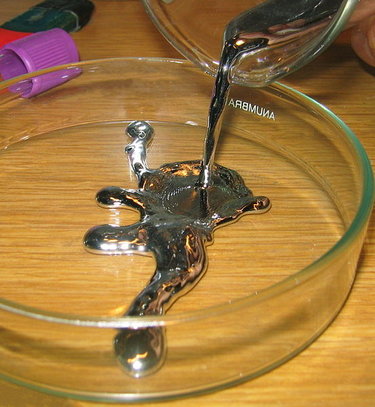$9M cleanup of Mereco site starts
Excavation and reclamation of a half-acre of land, on Railroad Avenue, contaminated with mercury, will begin next week, according Larisa Romanowski, a spokesperson from the Environmental Protection Agency.
The project, which is estimated to take up to a year to complete, in two phases, will cost a total of $9.3 million.
The EPA held a public information meeting, at the Colonie library, on Sept. 16, but Romanowski said it was not well attended.
The Mercury Refining Company, Inc., also know as Mereco, at 26 Railroad Ave., situated in parts of Guilderland and Colonie, used the site for reclaiming mercury from batteries and other materials from 1956 to 1998. The site is currently used as a facility for the recovery of other precious metals.
The soil, groundwater, and sediment at the site are contaminated with mercury. An unnamed tributary, which runs parallel to the site, merges with the Patroon Creek, and empties into the Hudson River, has also been contaminated.
Exposure to mercury can damage the nervous system, and harm the brain, heart, lungs, kidneys, and immune system. Mercury can also build up in the tissue of fish and other wildlife, causing a threat to those who eat them.
In the 1980s, the New York State Department of Environmental Conservation ran tests on the soil and sediment at the Mereco site and discovered the high levels of mercury. In 1983, the site was placed on the federal Superfund list, which is the government’s program to clean up uncontrolled hazardous waste sites.
In 1985, soil was excavated and removed from a portion of the site. After the mercury reclamation activity ended in 1998, the DEC requested that the EPA take over as the lead agency for cleaning up the site, after Mereco failed to clean it up, stating it did not have the proper funds.
In September 2008, the EPA issued a record of decision, specifying that that mercury-contaminated soil above the water table would be excavated, contaminated soil below the water table would be treated, and contaminated sediment would be removed from the unnamed tributary.
All parties responsible for the contamination are providing funding for the project, according to Romanowski, which is part of the reason it has taken nearly five years to begin work.
“Time is necessary to design the cleanup, plan it all out, and find the parties responsible for contamination,” Romanowski said.
The Superfund program, she said, operates on the principle that polluters should pay for the cleanup. The main parties responsible for contamination at the Mereco site include Gillette Company, KeySpan Gas East Corporation, Energizer Battery Manufacturing, Union Carbide Corporation, and Spectrum Brands, Inc.
The first phase of the project, slated to begin next week, will involve 4,000 cubic feet of soil, at the surface, being excavated and taken to a disposal facility, and the excavated area will be filled with clean soil and re-planted with vegetation. Contaminated sediment from the tributary will also be removed and disposed of at a landfill.
The first phase is expected to last three months, and Romanowski said safety procedures, including air monitoring around the work zone and perimeter, are in place to protect the public. Efforts will also be made to minimize site-related traffic, as well.
The second phase, slated to begin in the spring, will involve treating the contaminated soil deeper in the ground, using a procedure that locks the mercury in a mixture of cement and another agent, preventing it from moving into the surrounding soil and groundwater.
The owner of the site will be responsible for ensuring that the treated soil and water are not disturbed, and that no drinking-water wells are installed.
The EPA hopes to have the whole project completed by the spring of 2014.



